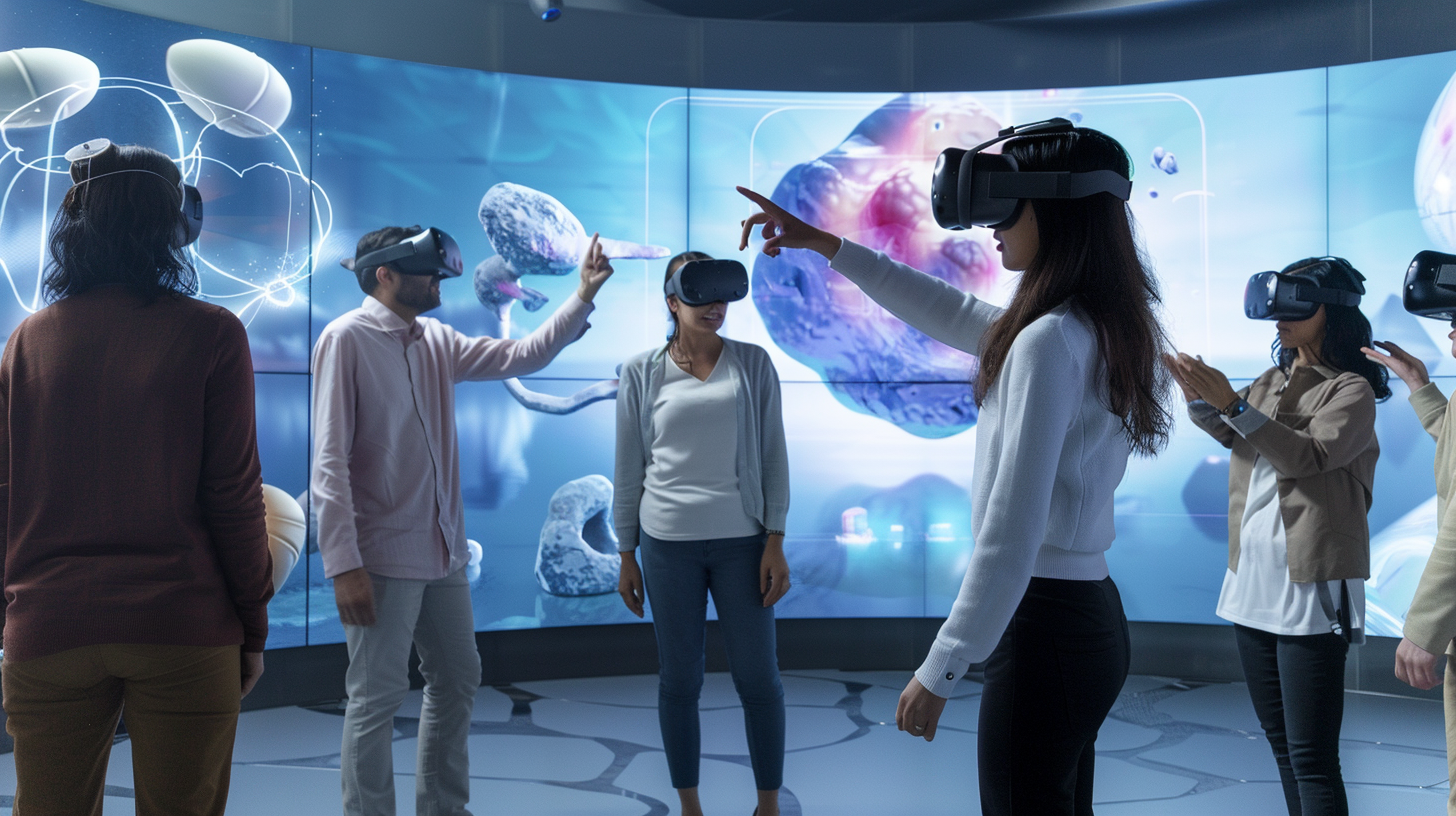Embark on a journey through the groundbreaking features of GPT-5, boasting 52 trillion parameters and a pursuit of advanced problem-solving capabilities. Discover its wide-ranging applications across business innovation, environmental sustainability, and personalized customer experiences. Witness its profound impact on education with tailored learning experiences and reshaped teaching methodologies. Witness its revolutionary advancements in healthcare, from enhanced diagnostics to personalized treatment strategies. Explore the ethical considerations and implications on cybersecurity and employment. Uncover the potential of GPT-5 to redefine AI technology and influence various sectors significantly. A world of innovation and transformation awaits those intrigued by GPT-5.
Key Takeaways
- GPT-5 hosts 52 trillion parameters for advanced AI capabilities.
- Multimodal design enhances problem-solving in various tasks.
- Driven to reach PhD-level intelligence for complex functions.
- Impacts span business innovation, sustainability, and improved customer experiences.
- Revolutionizes education, medical diagnostics, treatment, and research processes.
Cutting-Edge Features of GPT-5
Amidst the anticipation surrounding the forthcoming release of GPT-5, the advanced features that this artificial intelligence model boasts have piqued the interest of researchers and technology enthusiasts alike. With next-gen capabilities and innovative functionalities, GPT-5 is set to redefine the boundaries of AI technology. Rumored to host 52 trillion parameters and operate as a multimodal model, it signifies a significant leap forward in the realm of artificial intelligence. Notably, GPT-5 aims to achieve PhD-level intelligence for specific tasks, paving the way for enhanced problem-solving abilities and scientific advancements. As a highly anticipated development in the AI landscape, GPT-5 is expected to introduce groundbreaking capabilities that promise to redefine the future of artificial intelligence.
Diverse Applications in Various Fields
Anticipation surrounds the forthcoming release of GPT-5, with its advanced features sparking interest in diverse applications across various fields. This powerful AI technology holds promise for revolutionizing businesses and contributing to environmental sustainability.
- Business Innovation: GPT-5 is poised to augment decision-making processes, streamline operations, and foster creativity in diverse industries.
- Environmental Sustainability: Through data analysis and predictive capabilities, GPT-5 offers solutions for sustainable practices, energy efficiency, and resource management.
- Enhanced Customer Experiences: GPT-5 can personalize interactions, optimize marketing strategies, and improve overall customer satisfaction.
- Efficiency in Supply Chain Management: By enhancing forecasting accuracy and optimizing logistics, GPT-5 can drive efficiency and sustainability in supply chain operations.
Transformative Impacts on Education
The integration of GPT-5 into educational settings marks a significant milestone in the realm of learning technology. AI tutors driven by GPT-5 offer personalized learning experiences, catering to individual student needs and enhancing academic performance. This advancement revolutionizes education by making quality learning more accessible to all, fostering a knowledge revolution. Students benefit from expert-level insights, deepening their understanding of complex subjects. GPT-5’s impact in education transcends traditional teaching methods, providing virtual tutor capabilities that deliver tailored support and explanations. Through these innovations, GPT-5 is reshaping the way students learn, bringing forth a new era of enhanced educational experiences and opportunities for all.
Revolutionary Role in the Medical Sector
With the groundbreaking advancements brought by GPT-5 into the realms of education, it is imperative to recognize its transformative potential within the medical sector. GPT-5 revolutionizes the field of medicine by:
- Enhanced Diagnostics: GPT-5’s advanced data analysis capabilities enable more accurate and timely diagnoses, potentially saving lives.
- Personalized Treatment: By processing vast amounts of patient data, GPT-5 can recommend tailored treatment plans based on individual needs, leading to more effective care.
- Efficiency in Drug Development: GPT-5 accelerates medical research by identifying patterns in large datasets, streamlining drug discovery processes.
- Medical Advancements and Discoveries: Through its insights, GPT-5 contributes to groundbreaking discoveries in the medical field, fostering innovation and progress.
Addressing Challenges and AI Implications
To mitigate the potential risks and harness the full benefits of AI technologies, proactive measures are essential in addressing challenges and implications associated with the deployment of innovative solutions like GPT-5. Ethical considerations play a pivotal role in ensuring AI technologies are developed and used responsibly. Safeguarding data privacy, addressing cybersecurity issues, and managing the impact on employment due to increasing automation are critical aspects. Workforce integration is another key factor that requires attention to support displaced workers and facilitate a smooth transition towards AI-enhanced environments. Collaborative efforts among policymakers, businesses, and educators are necessary to navigate the evolving landscape of AI technology while ensuring a balanced approach that considers both opportunities and challenges.
Frequently Asked Questions
Will GPT-5 Have Autonomous Decision-Making Capabilities?
Autonomous decision-making capabilities in GPT-5 would pose significant ethical implications, necessitating regulatory guidelines to mitigate risks. The potential for AI systems to make autonomous decisions raises concerns about accountability, fairness, and unintended consequences. To address these challenges, robust regulatory frameworks and ethical standards must be established to govern AI systems’ decision-making processes. Striking a balance between innovation and ethical considerations is crucial in ensuring the responsible development and deployment of AI technologies.
How Will GPT-5 Handle Conflicting Information in Data?
Addressing conflicting information, GPT-5 will require robust mechanisms for bias detection and data validation to ensure trustworthiness in decision-making. Ethical implications arise in handling conflicting data as it can impact outcomes and user trust. Maintaining transparency in the validation process will be critical to assure GPT-5’s reliability. Implementing stringent validation protocols and bias-checking algorithms will be pivotal in upholding accuracy and ethical standards in data processing.
Can GPT-5 Understand and Generate Emotions in Text?
Just as a skilled painter wields a brush, GPT-5 may master sentiment analysis, grasping emotions in text. Emotion generation is complex, raising ethical concerns about influencing users or exhibiting biases. Balancing emotional nuance with ethical considerations is crucial. As GPT-5 delves into emotional realms, vigilance is required to ensure responsible handling of sentiment analysis and emotion generation, fostering understanding and empathy without compromising integrity or perpetuating harmful stereotypes.
What Measures Are in Place for Gpt-5’s Cybersecurity?
Measures for GPT-5’s cybersecurity involve robust data encryption protocols to safeguard sensitive information. Additionally, a comprehensive cyber defense strategy is implemented to mitigate potential threats and vulnerabilities. These initiatives ensure the protection of data integrity and confidentiality, addressing concerns related to unauthorized access and cyber attacks. By prioritizing data encryption and cyber defense mechanisms, GPT-5 aims to uphold the highest standards of security and privacy in its operations.
How Will GPT-5 Tackle Language Nuances and Cultural Context?
GPT-5 faces localization challenges in addressing language nuances and cultural contexts. Achieving cross-cultural understanding entails navigating intricacies like idiomatic expressions, dialect variations, and cultural sensitivities. To tackle these complexities, GPT-5 may utilize advanced natural language processing algorithms, machine learning techniques, and large-scale data sets for diverse cultural inputs. Integrating diverse perspectives and context-specific data sources will be instrumental in enhancing GPT-5’s ability to comprehend and generate culturally appropriate responses.

